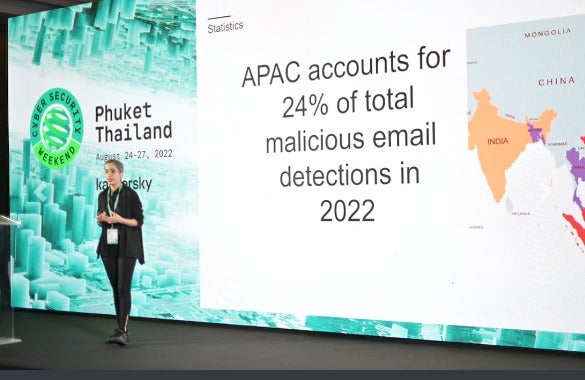There is absolutely no doubt that online scams are now much more prevalent than ever as scammers are constantly devising innovative ways to take your money, where one of the most common methods is through emails.
Recently, global cybersecurity company Kaspersky revealed that more than half of the malicious emails circulated across the Asia Pacific (APAC) region were detected in 5 countries including Malaysia.
As of mid-August 2022, Malaysia is among the top 5 countries in APAC including Vietnam, Japan, Indonesia and Taiwan to accumulate 61.1% of the total malicious emails detected by Kaspersky Mail Antivirus.

Vietnam tops the list of the most spam emails detected with a total of 3.09 million emails whilst Malaysia comes in second with 2.36 million. Japan (1.86 million), Indonesia (1.80 million) and Taiwan (1.45 million) made up the rest of the top 5 countries.
According to BERNAMA, Kaspersky Global Research and Analysis Team (GReAT) senior security researcher Noushin Shabab highlighted that the APAC region accounts for almost 24% of total global malicious emails detected this year.

“The APAC region has almost 60% of the world’s population. This means there are more potential victims for scammers here compared to other parts of the world,” she said in a presentation during Kaspersky’s 8th APAC Cyber Security Weekend.
“The extensive use of online services such as online shopping and other online platforms for day-to-day activities here also makes individuals more susceptible to falling victim to scams.”
Noushin said there are 3 main factors which caused the bulk of spam emails that target the APAC region. These include its population, the high adoption of e-services, and the pandemic lockdowns.

For illustration purpose only
“There is also the lingering pandemic aftermath which led to lockdowns and work-from-home set up in the region where people took their work computers home,” she explained.
“Home networks are usually less protected from cyberattacks,” she added. However, Noushin noted that the number of malicious spam mails detected by Kaspersky solutions has seen a decline since its peak in 2019.
“These malicious emails were mostly sent by cyber criminals in the form of mass email to reach more users, with the intention of making financial gains for the attacker.”
“Our constant monitoring of the current and new advanced persistent threats operating in APAC showed that the majority of these notorious threat actors use targeted phishing called spear phishing to crack into an organisation’s systems,” she concluded.
What do you think of this? Have you personally seen a rise in malicious emails in your inbox?
Also read: “Another day, another data leak” – Data Breach At Major M’sian E-Payment Company Sparks Outrage






































